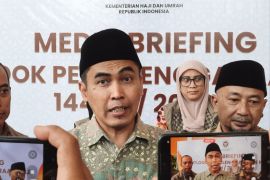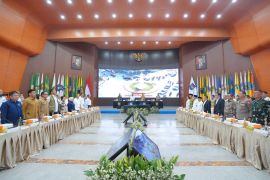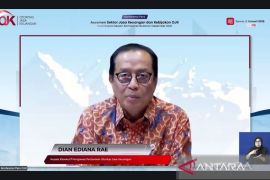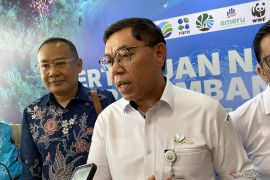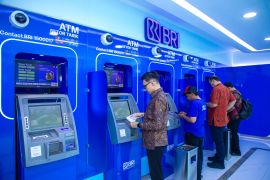"President Jokowi has instructed Chairman of the Board of Procurement of Government Goods and Services (LKPP) Agus Rahardjo to design a system, which will improve the process of procuring goods and services," Andi stated.
In the meantime, LKPP Chairman Agus Rahardjo affirmed that the government could save the state budget by implementing an e-catalog system for the procurement of goods and services.
"For instance, the government can spend less money to buy books for students by using the e-catalog system. For the procurement of health service equipment, the government can save up to 40 to 60 percent of the budget," Agus pointed out.
Minister for the Empowerment of State Apparatuses and Bureaucratic Reforms Yuddy Chrisnandi earlier stated that the benefit of e-Government implementation in Indonesia is the creation of an integrated system of management by the government.
"This will make data management transparent as anyone will be able to access and see the government projects, their budget, and fund spending," Yuddy noted.
According to Yuddy, if government agencies implement separate management systems using information technology and communications, it will burden the budget, he pointed out.
If all are integrated into a single system, the management will be simpler and easier as all the necessary data will be accessible from the same system, he explained.
Yuddy remarked that Rp14 trillion, or US$1.2 billion, has been allocated for information technology and communications in the Indonesian budget, which is larger than Singapores spending of US$800 million and Britains budget of US$518 million.
"A lot of funds will be saved if the system is integrated, both in terms of human resources, goods expenses, and capital," he pointed out.
He noted that e-Government cooperation is in line with the directive of President Joko Widodo, who wants integration of all systems using information technology to ensure more effective, efficient, and productive management of the administration.
Jokowi revealed that his office will prepare a draft policy for e-Governance to provide the legal basis for the implementation of electronic government administration.
The e-Government system will be accessible to the public in 2016 and will start functioning optimally in 2019, he added.(*)
Editor: Heru Purwanto
Copyright © ANTARA 2014
